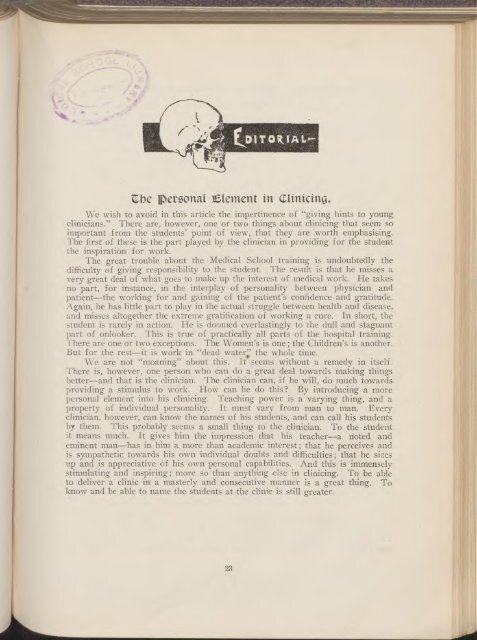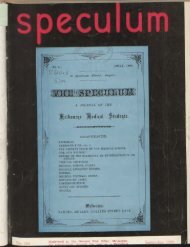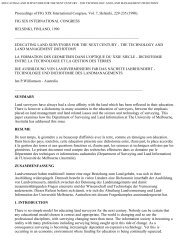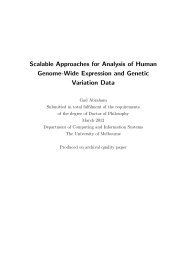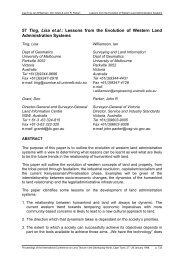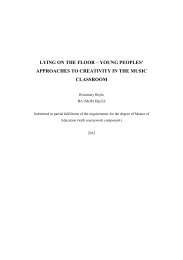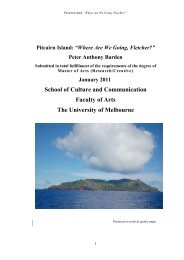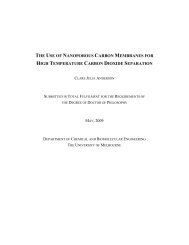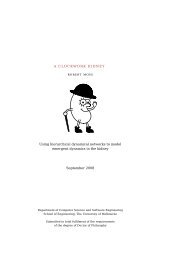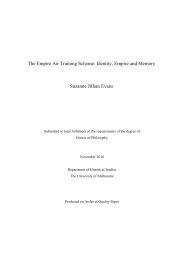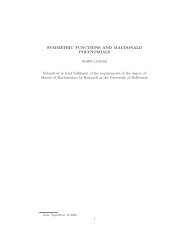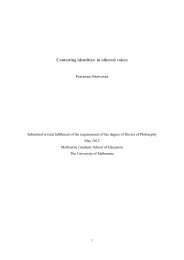ramsay & co.
ramsay & co.
ramsay & co.
You also want an ePaper? Increase the reach of your titles
YUMPU automatically turns print PDFs into web optimized ePapers that Google loves.
Ebe Ipersonal element in Clinicing.<br />
We wish to avoid in this article the impertinence of "giving hints to young<br />
clinicians." There are, however, one or two things about clinicing that seem so<br />
important from the students' point of view, that they are worth emphasising.<br />
The first of these is the part played by the clinician in providing for the student<br />
the inspiration for work.<br />
The great trouble about the Medical School training is undoubtedly the<br />
difficulty of giving responsibility to the student. The result is that he misses a<br />
very great deal of what goes to make up the interest of medical work. He takes<br />
no part, for instance, in the interplay of personality between physician and<br />
patient—the working for and gaining of the patient's <strong>co</strong>nfidence and gratitude.<br />
Again, he has little part to play in the actual struggle between health and disease,<br />
and misses altogether the extreme gratification of working a cure. In short, the<br />
student is rarely in action. He is doomed everlastingly to the dull and stagnant<br />
part of onlooker. This is true of practically all parts of the hospital training.<br />
There are one or two exceptions. The Women's is one ; the Children's is another.<br />
But for the rest—it is work in "dead water; the whole time.<br />
We are not "moaning" about this. It seems without a remedy in itself.<br />
There is, however, one person who can do a great deal towards making things<br />
better—and that is the clinician. The clinician can, if he will, do much towards<br />
providing a stimulus to work. How can he do this? By introducing a more<br />
personal element into his clinicing. Teaching power is a varying thing, and a<br />
property of individual personality. It must vary from man to man. Every<br />
clinician, however, can know the names of his students, and can call his students<br />
by them. This probably seems a small thing to the clinician. To the student<br />
it means much. It gives him the impression that his teacher—a noted and<br />
eminent man—has in him a more than academic interest ; that he perceives and<br />
is sympathetic towards his own individual doubts and difficulties ; that he sizes<br />
up and is appreciative of his own personal capabilities. And this is immensely<br />
stimulating and inspiring; more so than anything else in clinicing. To be able<br />
to deliver a clinic in a masterly and <strong>co</strong>nsecutive manner is a great thing. To<br />
know and be able to name the students at the clinic is still greater.<br />
23


